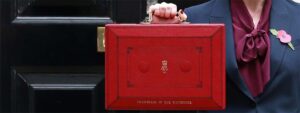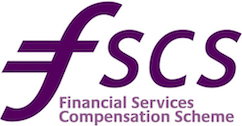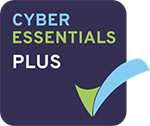Financial Capability Week 2017 (FinCap 2017) aims to teach the UK how to become more financially capable and better at budgeting, all year round.
Budgeting is about controlling your spending, focusing your hard-earned money on the things that matter most, and avoiding wasting your money on things you could comfortably live without.
With FinCap 2017 in mind, and because we at Metfriendly know how essential budgeting is to a fulfilling life and to better savings and investment, we are sharing some advice on budgeting.
If you find budgeting tough and rarely have money left over at the end of the month, read on to find out our six top ways to budget more effectively.
1. Calculate your spendings
It may sound like a hassle, but working out exactly how much money you have to spare each month is the foundation of an effective budget. To begin, you need to do three things:
- Make a list of your monthly bills.
- Keep all your receipts for a full month
- Print off a month’s bank statement.
Now you’re ready to start!
Once you’ve done these three things, you’ll be able to see the difference between your salary and your basic living costs. You can also see exactly where your money is going, and begin to decide whether you are spending wisely or frittering your funds away.
2. Highlight unnecessary spending
There will undoubtedly be items in your list of outgoings that you often purchase but have no need for. Recognising these for what they are doesn’t mean that you should tell yourself off for indulging in them – as long as you can justify the the amount they they cost you with the pleasure you get from them. Only you can answer this.
Something that many people find when they take an objective look at their expenditure is that they are making purchases without considering their importance. For example, if you buy a coffee every morning, could you buy a travel mug and brew a coffee before leaving the house instead? Are you buying lunch out, when you could be making a cheaper, yet even more delicious packed lunch?
What savings could you make by cutting out those unnecessary purchases?
3. Have a target
One powerful and motivational trick for budgeting better is to give yourself a target, and therefore a reason to save.
The Money Advice Service recommends initially saving up three months’ worth of expenses into an easy-access account, for any unexpected bills or lump sums. Once you have managed to save this emergency fund, you can turn your attention towards a more definite goal. Ask yourself:
- Do you want to buy something extravagant for your home?
- A holiday?
- A new car without using a loan?
- A new property?
- A more financially stable retirement?
A tangible target can be effective for making those small but important sacrifices. You can also split the possible targets you may save for into short-term goals (holiday, emergency fund, car) and long-term goals (retirement, a new home, your child’s university fees).
4. Try the 50/20/30 outlook
Split your monthly expenditure into the three most important areas of spending. Asda Good Living suggests that you put 50% of your income aside to be spent on monthly essentials, 20% for long term savings, and 30% for lifestyle choices.
The 50/20/30 rule is a great first step to guide you towards saving more for your future. Just remember that it is only a starting point to help you think more carefully about your spending, and can be altered over time. You can adjust the figures to suit your lifestyle and earnings as they change.
5. Automate savings
Consider setting up a fixed amount to automatically leave your account after your salary is paid, as this can be a highly effective way to ensure that you save each month. It removes the possibility of forgetting about the transfer, and therefore reduces the temptation to spend the money instead.
If you choose to save with a Metfriendly plan, the money taken will go directly to provide for your future and financial security. You will be able to see the amount debited on your payslip too.
6. Use technology
A range of apps can simplify and streamline the budgeting process of getting into good saving habits.
Apps give you the framework you need to start budgeting effectively, including notifications when you have hit savings goals or when you need to pay your bills. Budgeting apps offer automation for regular transactions, and allow for manual changes, including the option to take photographs of receipts.
Some examples include:
- The Mint app, which can connect to your bank account to really personalise your budget.
- Penny is a friendly app that monitors your spending and your income, telling you how you are doing financially, forecasting how well you will do next month, and letting you know about upcoming bills.
- Chip uses an effective algorithm to determine how much you can save without disrupting your spending habits.
The importance of money management
FinCap 2017 aims to help everyone develop money management as an essential lifetime skill, whatever their age or situation.
In the video below, FinCap 2016 guests commented on the importance of understanding how to better manage money, saying:
- “I don’t think it’s ever too early to teach children about managing their money. There’s got to be simple lessons that the parents and schools can share.”
- “Being financially capable creates resilience, and creates better employees too. It’s hugely important.”
- “It’s important to look at the cost of a lack of financial capability. It makes people less self-sufficient.”
To download the Metfriendly budget planner, click the first link below. Using this exclusive guide, you can better understand your regular spending habits concerning travel, your home life, social life, debts, investments, and more.
If you are all set and ready to start saving and investing, click the other link to see how Metfriendly’s ISAs and savings plans can benefit you.
Share















